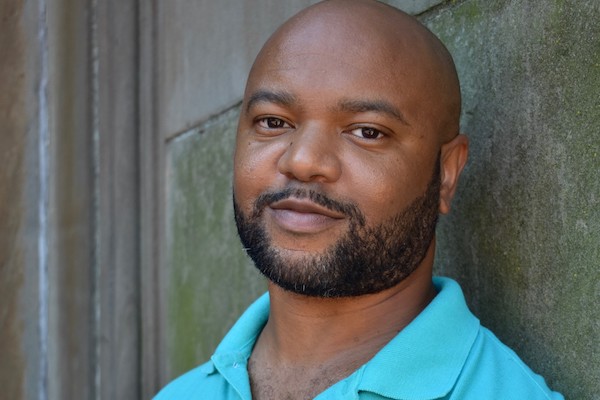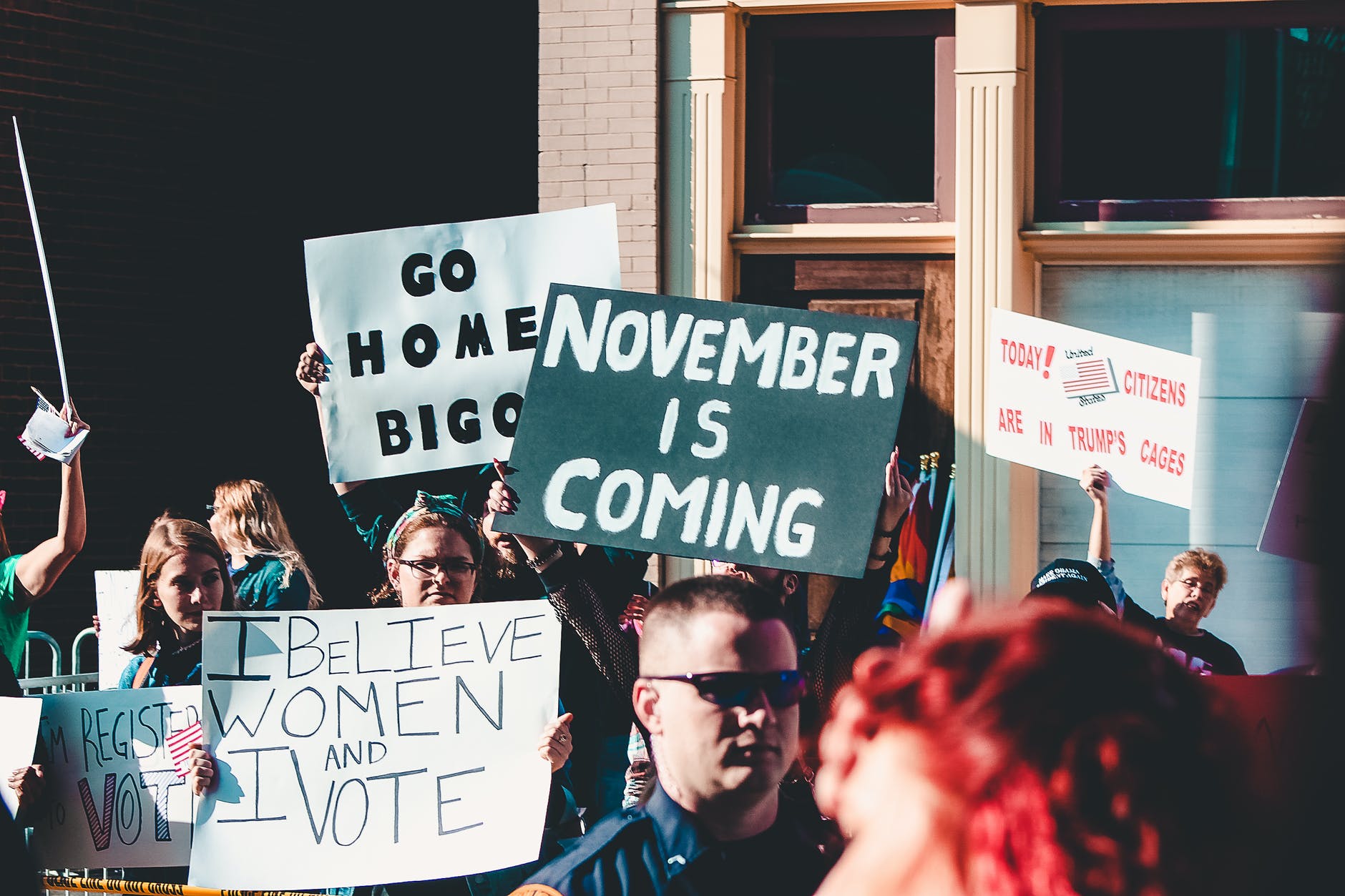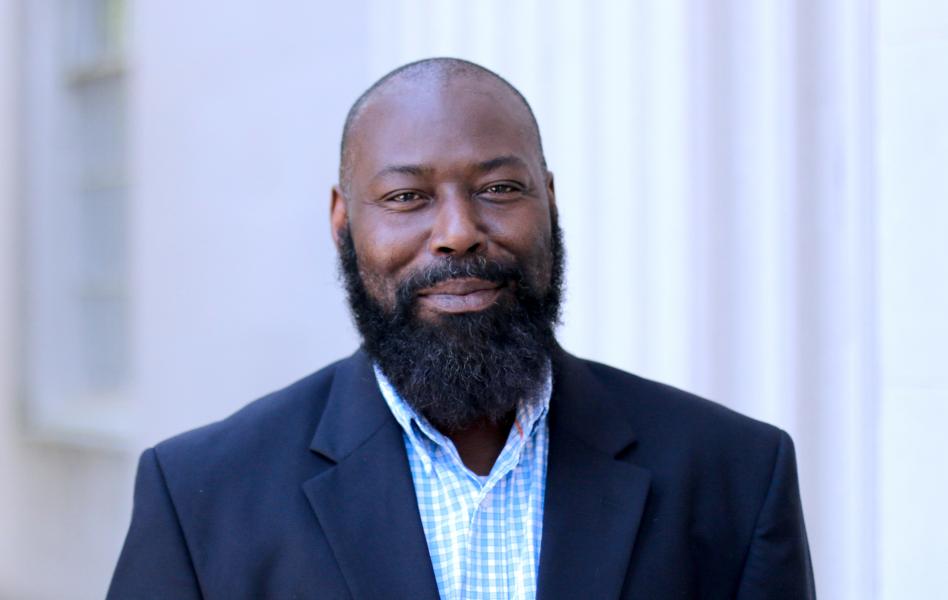
De’Shawn Charles Winslow
Elizabeth City native De’Shawn Charles Winslow’s debut novel, “In West Mills” might be the blackest novel set in North Carolina this year, maybe ever.
This book is all about African Americans living and struggling in eastern North Carolina from about 1940 to 1987. There are no major white characters and no focus on racism and Jim Crow. There is almost nothing about racial conflict or the civil rights struggle. Putting these themes aside, Winslow shows his characters dealing with universal challenges that people of all races confront as they deal with the human situation.
West Mills is a fictional small town in eastern North Carolina, somewhere between Elizabeth City, where the author grew up, and Ahoskie where the main character of the novel was born and reared.
That main character, Azalea Centre, or Knot, as she is called by everyone, has moved to West Mills from Ahoskie, where her father is a dentist and a bulwark of the local church. Knot, however, wants to get away from her family and make her own way.
She finds a teaching job in West Mills. Knot loves 19th century English literature. That sounds good for a teacher, but she also loves cheap moonshine and bedding a variety of men. One of them, Pratt Shephard, wants to marry her. But after a session of enthusiastic lovemaking, she tosses him out of her life. He signs up to fight in the looming World War II.
Soon after Pratt leaves, Knot learns she is pregnant. She does not want to end the pregnancy, but wants nothing to do with the child after its birth. To the rescue comes a dear friend, Otis Lee Loving, and his wife, Penelope or “Pep.” They find a local couple to adopt Knot’s daughter. All this is done in secret and only a few people in the community know that Frances, daughter of Phillip and Lady Waters, is really Knot’s birth child.
Shortly after she recovers from the first delivery, Knot becomes pregnant again. Otis Lee comes to the rescue once more. He finds a place for the new baby with local storeowners, Brock and Ayra Manning. They name the baby Eunice.
When they grow up, Frances and Eunice, not knowing about their common origin, come to despise each other and fight for the attention of the same man.
On this situation, Winslow builds a series of confrontations and complications that challenge the comfortable order of the West Mills community.
Meanwhile, as time passes, the community seems immune to the racial conflicts in other parts of the state. In one of the book’s few mentions of racial conflict, Otis Lee hears stories in 1960 about “the young colored people in Greensboro who had organized a sit-in a couple of months earlier” and pronounced it a terrible thing. Winslow writes,
“Greensboro hadn’t come to them yet. And Otis Lee hoped things would get better so that it wouldn’t have to.”
 Otis Lee is not only Knot’s loyal friend and rescuer. He becomes a major character. In a flashback to prohibition days he travels to New York City to rescue an older sister who is trying to pass for white. That effort fails, but his relationship with that woman provides a poignant thread that carries the book to one of its surprising endings.
Otis Lee is not only Knot’s loyal friend and rescuer. He becomes a major character. In a flashback to prohibition days he travels to New York City to rescue an older sister who is trying to pass for white. That effort fails, but his relationship with that woman provides a poignant thread that carries the book to one of its surprising endings.
“In West Mills” will not be released until June 4, but it is gathering early praise that indicates it could be a blockbuster. Adah Fitzgerald of Main Street Books in Davidson writes, “Winslow’s characters are rich and deeply developed. His dialogue feels like part of the landscape.”
Colin Sneed of Flyleaf Books in Chapel Hill says, “Winslow loves and respects and understands his characters and it comes through on every page.”
I agree with them.
 D.G. Martin hosts “North Carolina Bookwatch,” Sunday 11:00 am and Tuesday at 5:00 pm on UNC-TV. The program also airs on the North Carolina Channel Tuesday at 8:00 pm and other times.
D.G. Martin hosts “North Carolina Bookwatch,” Sunday 11:00 am and Tuesday at 5:00 pm on UNC-TV. The program also airs on the North Carolina Channel Tuesday at 8:00 pm and other times.
Related Stories
‹
![]()
One on One: When Do We Change Names and History?Last week the Raleigh City Council removed the historic designation of Wakestone, the former home of Josephus Daniels. That action is just one more reminder of North Carolina’s and the nation’s struggle to find agreement on what people should be honored and what versions of history should be taught in our schools. The unanimous action […]
![]()
One on One: Jim Crow Is Still Alive in North CarolinaUnbelievable when you think about it, how North Carolina maintained its segregated and discriminatory racial system for such a long time. The remnants of what is commonly called “Jim Crow” are still with us, a daily reminder of the horrors of the past. A new book, “Jim Crow in North Carolina: The Legislative Program from […]

One on One: Books for Holiday GivingIf you are worried about holiday gifts or selections for your book club’s reading, here are some good North Carolina-connected books to consider. Three beloved North Carolina authors have new books that would be perfect for fiction fans: Allan Gurganus, author of “The Oldest Confederate Widow Tells All,” gives us a crop of his best […]

One on One: Greek and Hebrew Guides to Our Political DifferencesHow can ancient Greek and Hebrew thinking help us understand why our friends who support other political candidates see things so differently from us? Why are we locked into such different positions? It is dangerous for anyone to try to explain why people support opposing political figures or different political parties or programs. We sometimes […]

One on One: North Carolina's GodfatherDoes North Carolina have a godfather? We would not want our godfather to be anything like Mexican Gen. Salvador Cienfuegos Zepeda, who is called “El Padrino,” which means “The Godfather.” Zepeda was arrested last week and charged with helping a drug cartel smuggle thousands of kilograms of cocaine, heroin, methamphetamine and marijuana into the United […]

One on One: President Trump and Nicholas SparksWhat do President Donald Trump and the lead character of Nicholas Sparks’ latest book have in common? Hint: Walter Reed Medical Center. Both the president and Trevor Benson, the fictional main character in Sparks’ “The Return,” received critically important treatment at Walter Reed. Trump got expert medical care for his coronavirus. Benson, a Navy surgeon, […]

One on One: Fighting for AmericaWe both love America? We would fight for our country. And we would fight to keep it the way we love it. And we would fight to make it the way we could love it more. It is just that we love different Americas. Even before the president was struck down by the coronavirus that […]

One on One: Religion, Too Much or Not Enough?Is Joe Biden too Catholic? Or not enough? Has Donald Trump corrupted the leaders of conservative religious groups? Religion is everywhere, even in four important books featured during the next few weeks on North Carolina Bookwatch. In Charlotte doctor and author Kimmery Martin’s “The Antidote for Everything,” the lead character is not deeply religious. However, […]

One on One: Who Wins the Debate About Debates?What is more interesting than the upcoming debates between candidates for major political offices? Of course, it is the debate about the debates. Some friends, well-informed and experienced in political activities, say the importance of such debates is vastly overrated. For instance, one said the recent first debate between North Carolina U.S. Senate candidates Republican Thom […]

One on One: Losing Randall KenanHe had to tell me that my beloved Uncle Remus was not coming back—ever. Randall Kenan was jovial, kind, and wise, not unlike the Uncle Remus he was taking away from me. Kenan, died last week at a much too early 57. Like Uncle Remus, he was an expert on trickster stories, mainly based on […]
›

 Otis Lee is not only Knot’s loyal friend and rescuer. He becomes a major character. In a flashback to prohibition days he travels to New York City to rescue an older sister who is trying to pass for white. That effort fails, but his relationship with that woman provides a poignant thread that carries the book to one of its surprising endings.
Otis Lee is not only Knot’s loyal friend and rescuer. He becomes a major character. In a flashback to prohibition days he travels to New York City to rescue an older sister who is trying to pass for white. That effort fails, but his relationship with that woman provides a poignant thread that carries the book to one of its surprising endings.
 D.G. Martin hosts “North Carolina Bookwatch,” Sunday 11:00 am and Tuesday at 5:00 pm on UNC-TV. The program also airs on the North Carolina Channel Tuesday at 8:00 pm and other times.
D.G. Martin hosts “North Carolina Bookwatch,” Sunday 11:00 am and Tuesday at 5:00 pm on UNC-TV. The program also airs on the North Carolina Channel Tuesday at 8:00 pm and other times.







